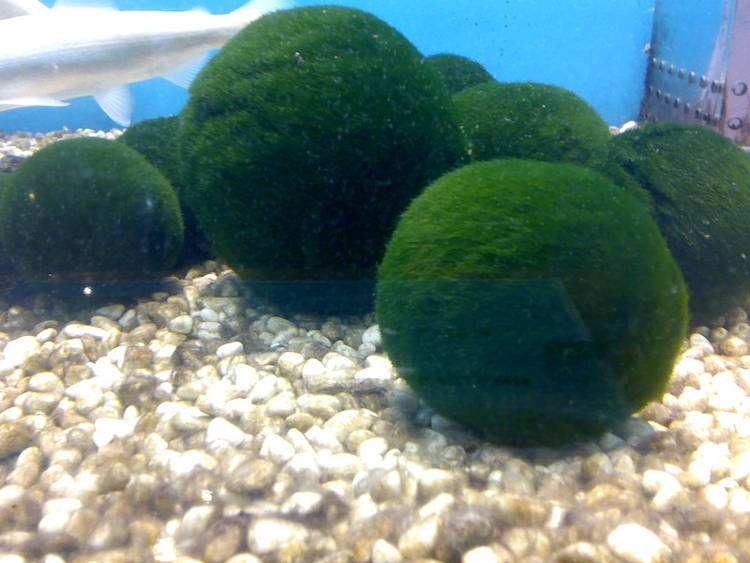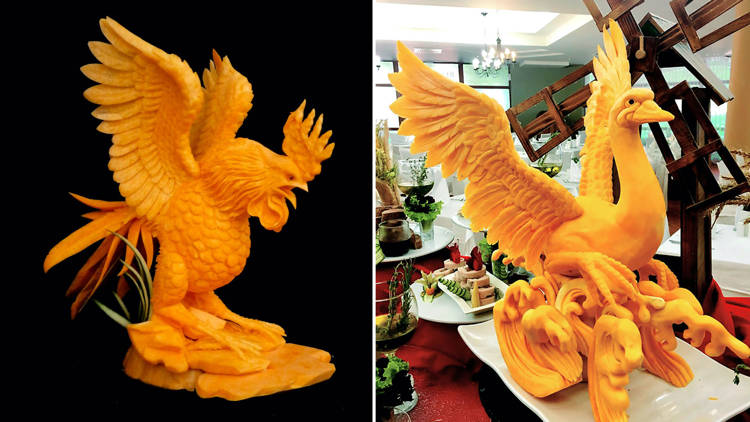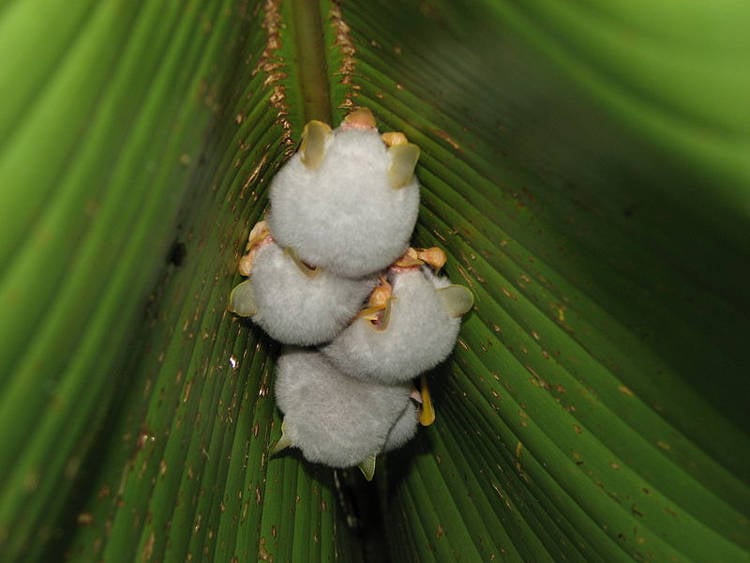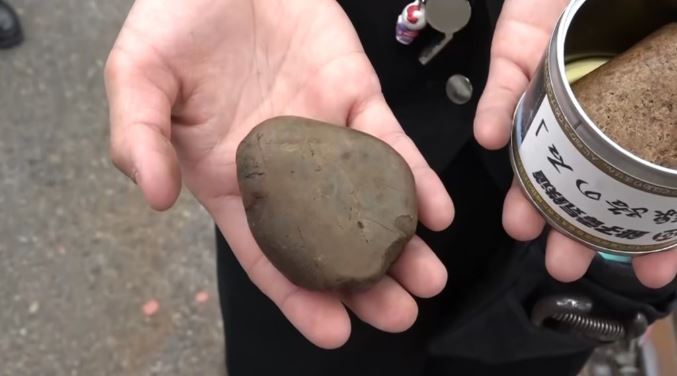Japanese Province Is Struggling to Stop People From Sleeping on Roads

Police in the Japanese province of Okinawa have been struggling with a phenomenon called rojo-ne, which translates literally as “sleeping on the road”. Imagine driving home late at night and seeing someone laying in the middle of the road. Or worse yet, not seeing that someone in time to actually slam the brakes. Such nightmare […]
Marimo – The Extremely Rare Algae Balls That Make Great Low-Maintenance Pets

Marimo is a rare growth form of the Aegagropila linnaei algae in which the aquatic plant grows into large green balls with a velvet-like texture and appearance. It’s also a natural treasure of Japan, as well as a popular pet. Aegagropila linnaei algae has long been a mystery in biology, particularly due to its fascinating […]
Forgotten Wonder – The First Transparent Car Made in America

Unveiled in 1939, the Pontiac Ghost Car was the first completely transparent car made in America, and eight decades later, photos of it are still a wonder to behold. Designed to showcase everything that goes into making an automobile in a time when the automotive industry was thriving, the Pontiac Ghost Car was built by […]
German Circus Weathers Pandemic by Selling Jars of Lion Poop

They say money does not smell, but a lucrative venture thought up by a German circus is proof that money can actually stink. The Krone Circus in Munich is in the business of selling lion poop. Circus are forbidden from performing during the pandemic, so many of them have been struggling to stay afloat in […]
Italian Man Fined $200 Because His Rooster Crows Too Early in the Morning

An 83-year-old man was ordered to pay a 166 euro fine after he failed to prevent his pet rooster from crowing at 4:30 in the morning, which some of his neighbors had complained about. Angelo Boletti, a pensioner from the Italian town of Castiraga Vidardo, in Lombardy, was found to have violated local rules, which […]
This Malaysian Cake Is Probably the World’s Most Intricate Dessert

Kek Lapis Sarawak is a traditional Malaysian cake famous both for its intricate kaleidoscopic appearance and the grueling process required to make it. Inspired by the spit cakes that Dutch colonists used to enjoy, Kek Lapis Sarawak was born in Malaysia’s Sarawak state, sometime in the 1970’s. It’s basically a much more complex version of […]
Widower Has Ultra-Realistic, Life-Size Sculpture of His Late Wife Installed at Family Home
An Indian man melted the hearts of millions in his home country after unveiling a life-size and almost lifelike sculpture of his late wife during a house-warming party. Srinivas Gupta, a businessman from Karnataka, India who lost his wife in a tragic car accident three years ago, wanted his life partner to be physically present […]
Wakaresaseya – Japan’s Professional Relationship Busters

In a country that eschews confrontation and frowns upon public display of passion, bold entrepreneurs eager to take up the burden of ending a romantic relationship on a client’s behalf can make a fortune. The Wakaresaseya, literally “breaker-uppers”, are professional agents that specialize in destroying relationships, be they marriages or affairs, for a fee. After […]
Only in Japan: Burning a Mountain as a Celebration

On the fourth Saturday of each January, the dead grass of Mount Wakakusa is set ablaze as part of a unique and impressive festival called Wakakusa Yamayaki (‘Wakakusa Burning Mountain’). No one known exactly how the tradition of burning an entire 342-metre-high hill in Japan’s Nara Prefecture actually started, but one thing is for certain […]
The Intricate Pumpkin Sculptures of Angel Boraliev

When it comes to artistic pumpkin carving, Bulgarian food artist Angel Boraliev is a cut above the rest. From fine details like feathers to intricate motifs, there is nothing he can’t carve out of a pumpkin. Boraliev, who works in the hotel and restaurant industry showcases his amazing sculptures at various events, but he has […]
The Irresistibly Cute Honduran White Bat

Of the roughly 1,300 known species of bat, very few can be described as cute and cuddly, but the tiny Honduran White Bat is definitely one of these rare exceptions. Also called the Caribbean White Tent-Making Bat, this adorable flying mammal can be found in the tropical forests of Central-American countries like Honduras, Nicaragua, Costa […]
Struggling Railway Operator Sells Canned Stones to Weather Pandemic

With tourism at an all-time low, a struggling Japanese railway operator is trying to avoid going under by selling canned stones from its railway tracks. Founded in 1923, the Choshi Electric Railway company, in Japan’s Chiba Prefecture, had to overcome adversity several times during its 97-year history, but the situation has never been more dire […]
14-Year-Old Forced to Give Away His Belongings After Taking Family Car on Joyride

A family from Phoenix, Arizona came up with an original way of punishing their 14-year-old son after he was caught by police speeding in the family car: they made him give away all his possessions. 14-year-old Angel Martinez’s parents were celebrating their anniversary in Las Vegas earlier this month when they received a call from […]
The Famously Narrow ‘Pie House’ of Deerfield

A suburban Chicago home has become known locally as the “Pie House” because of its resemblance to a wedge-shaped slice of pie. Built in 2003, on an oblong plot of land in Deerfield, Illinois, the Pie House has become somewhat of a local tourist attraction, with people stopping by regularly just to take pictures of […]
These Juicy-Looking Fruit Are Not What They Seem

An amateur confectioner from Vietnam has been getting a lot of attention for her stunningly-realistic tangerine-shaped steamed buns. Le Thuy, a secondary school teacher from Ho Chi Minh city, is well known among the confectioner community of the Vietnamese capital, especially for her jelly and bean cakes. However, she recently managed to surprise her peers […]
